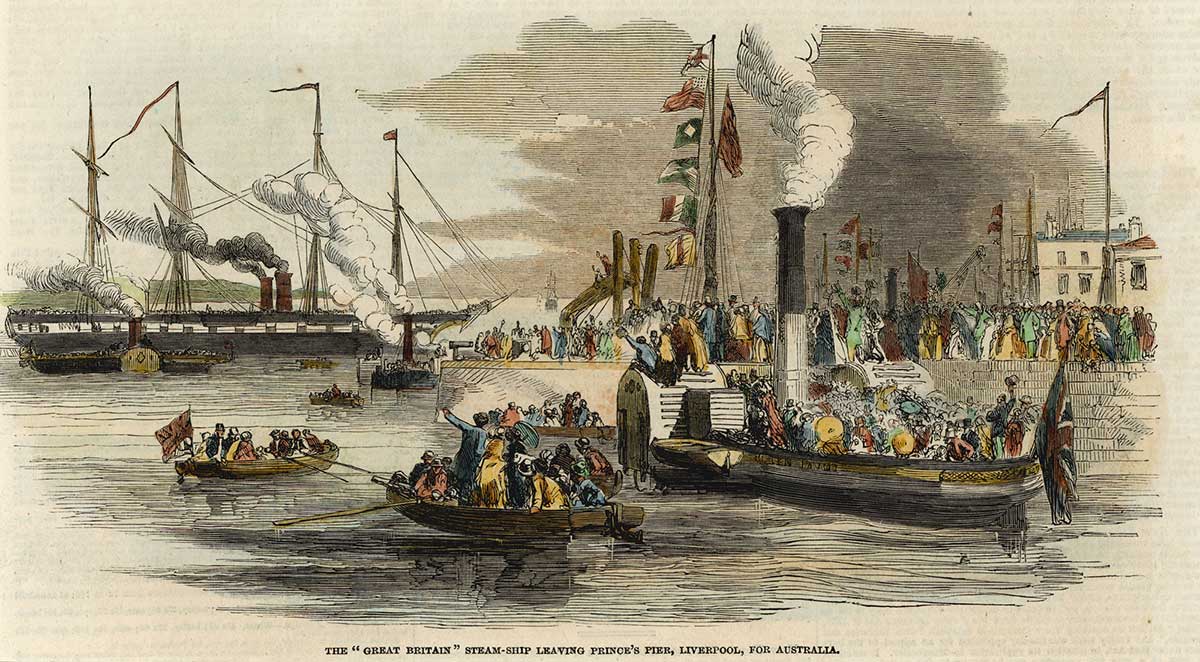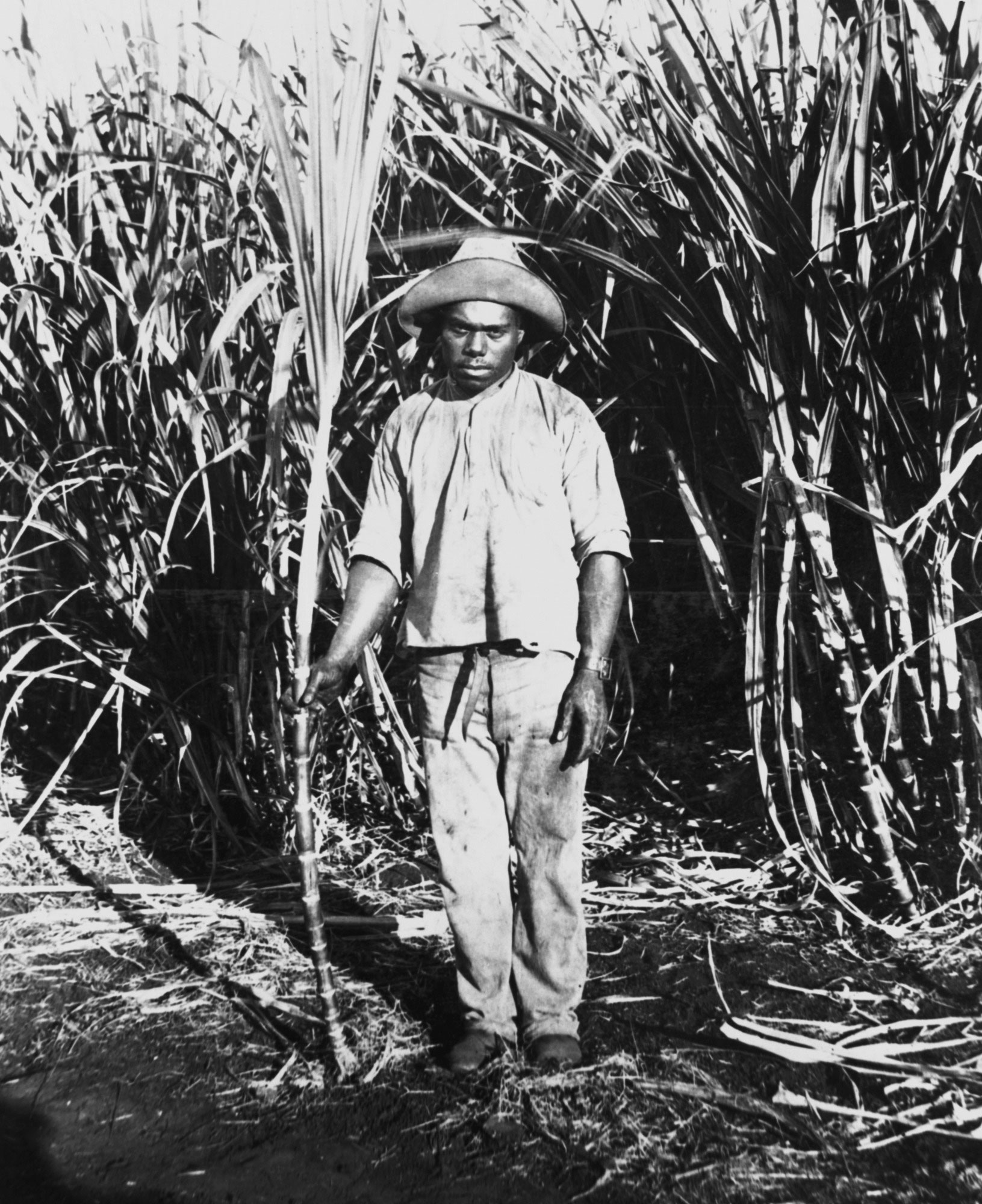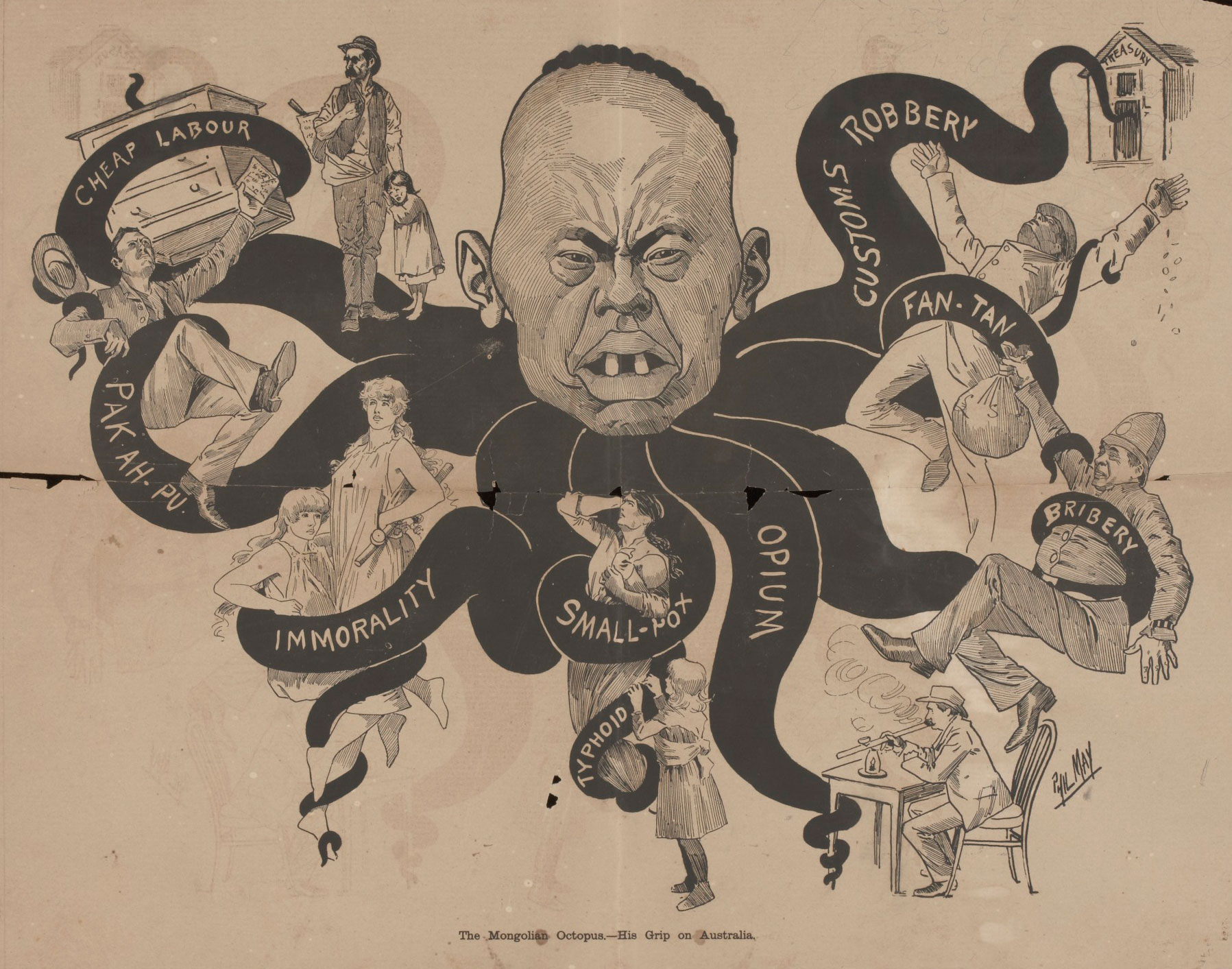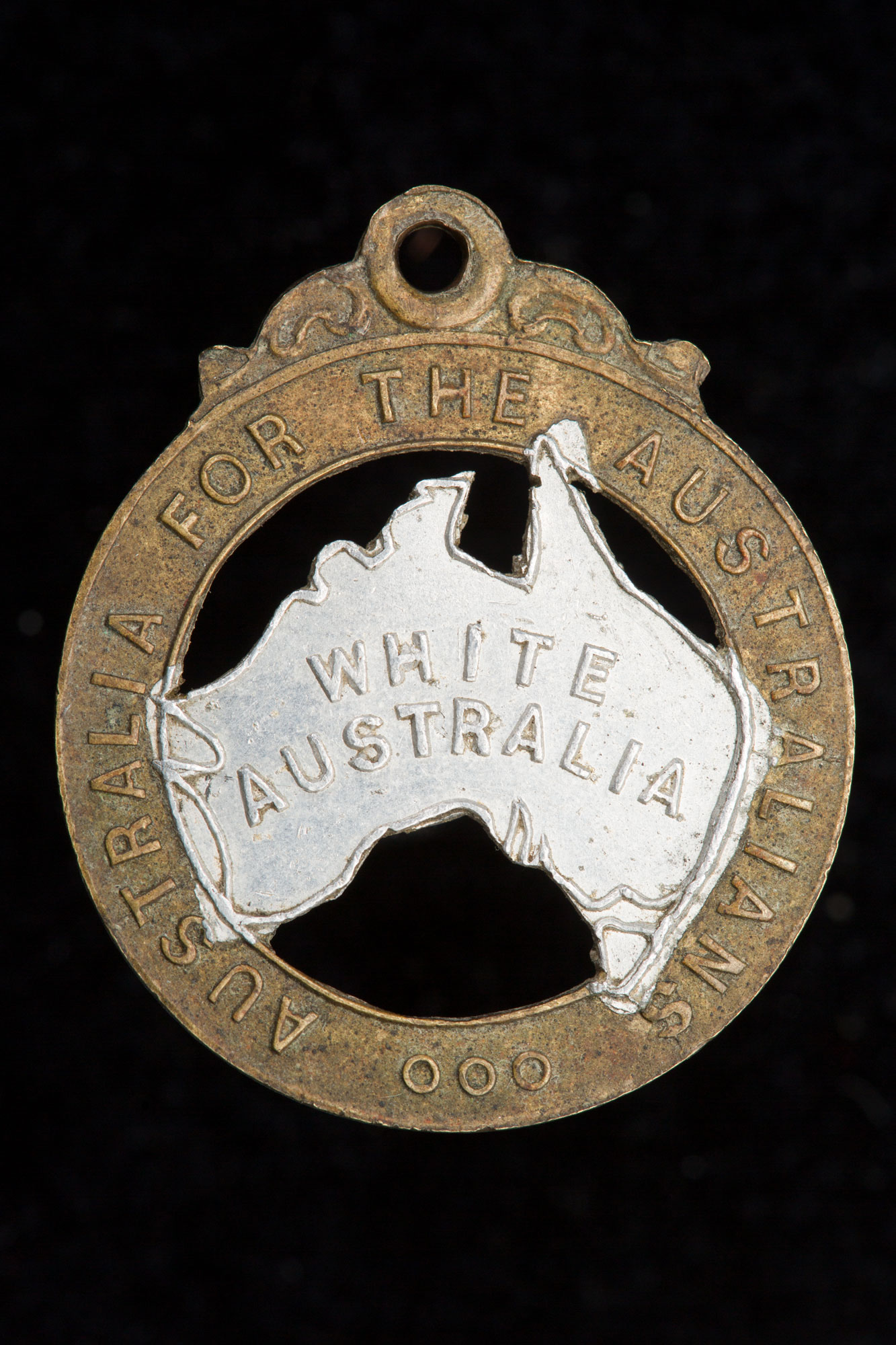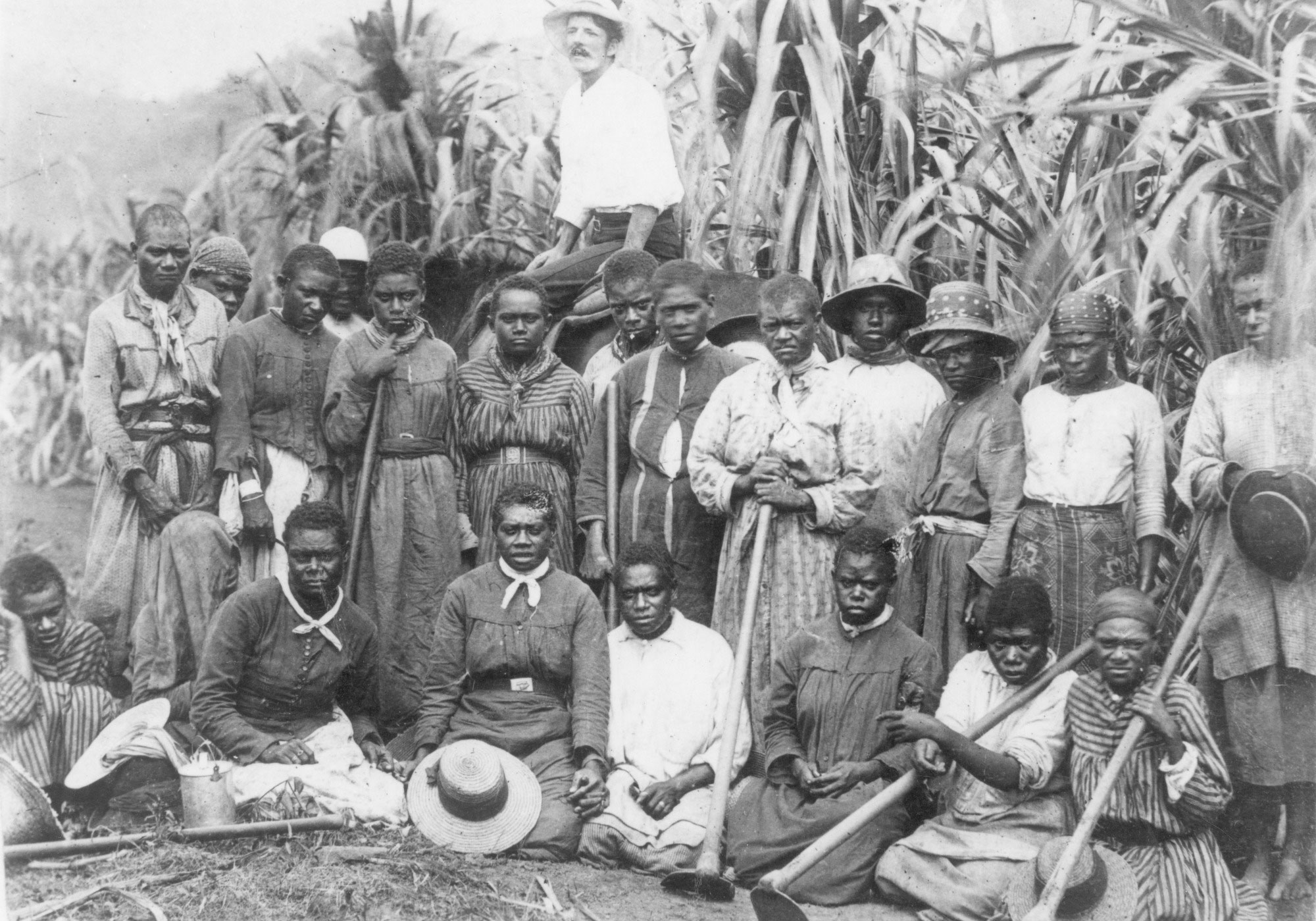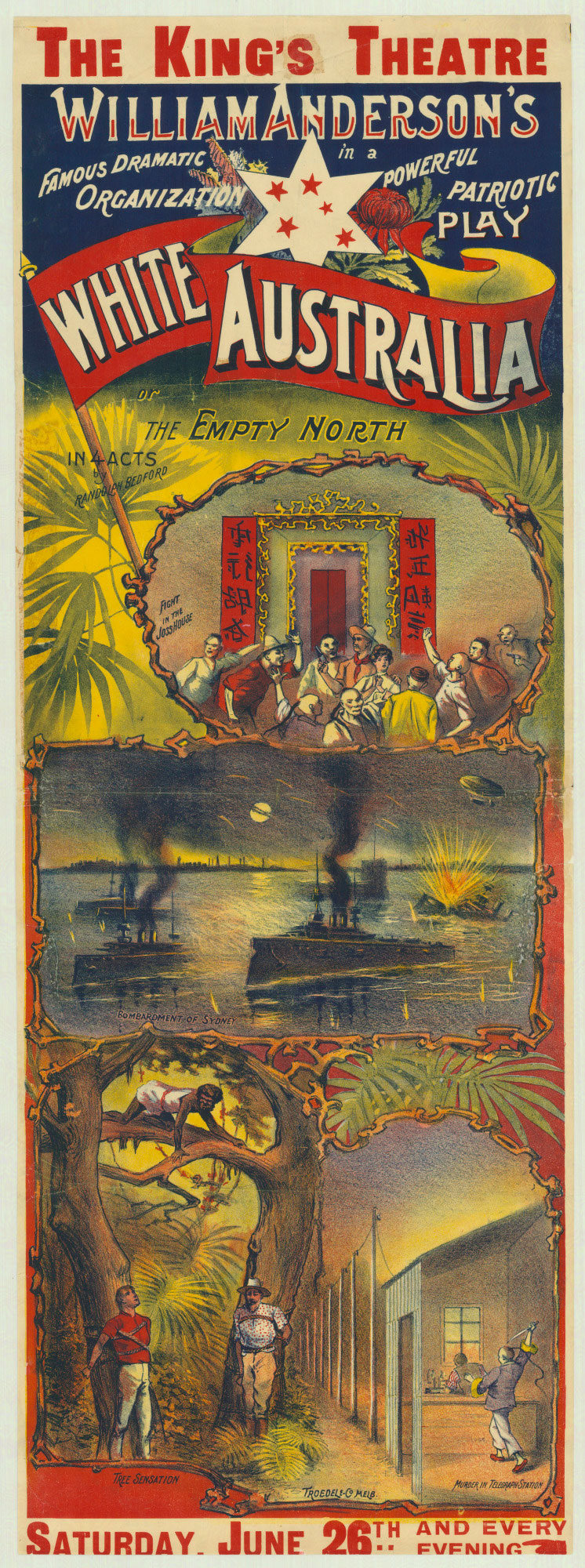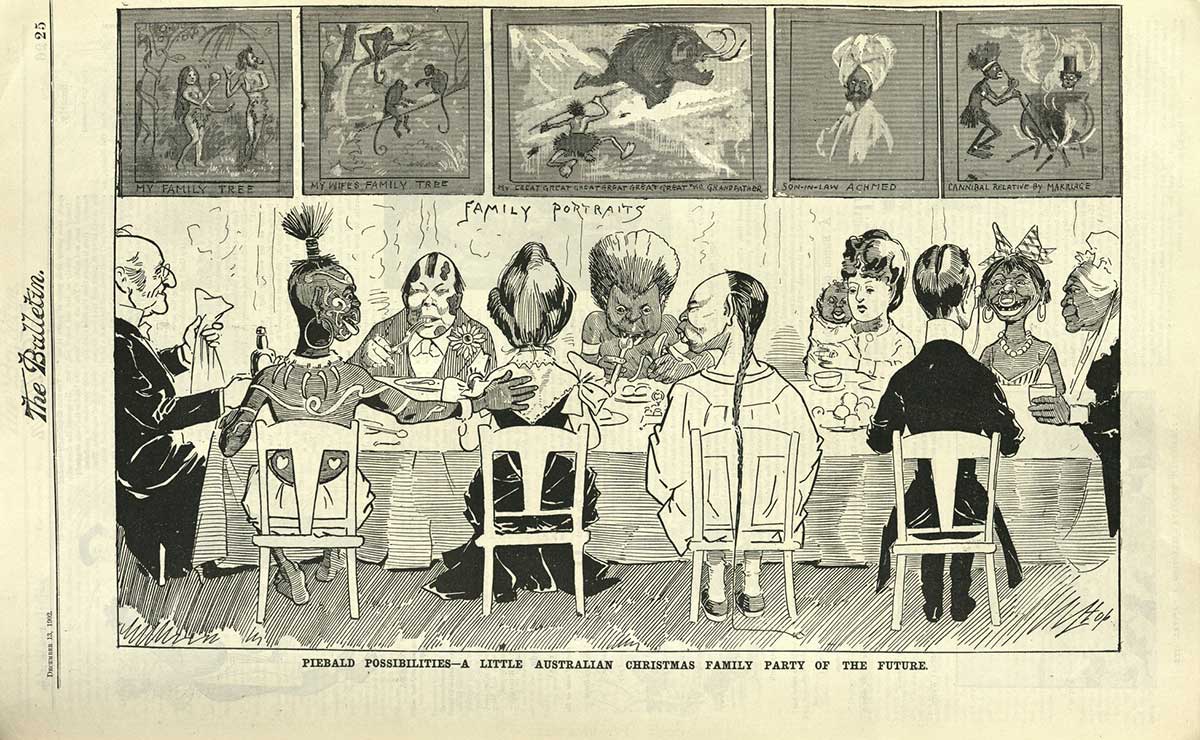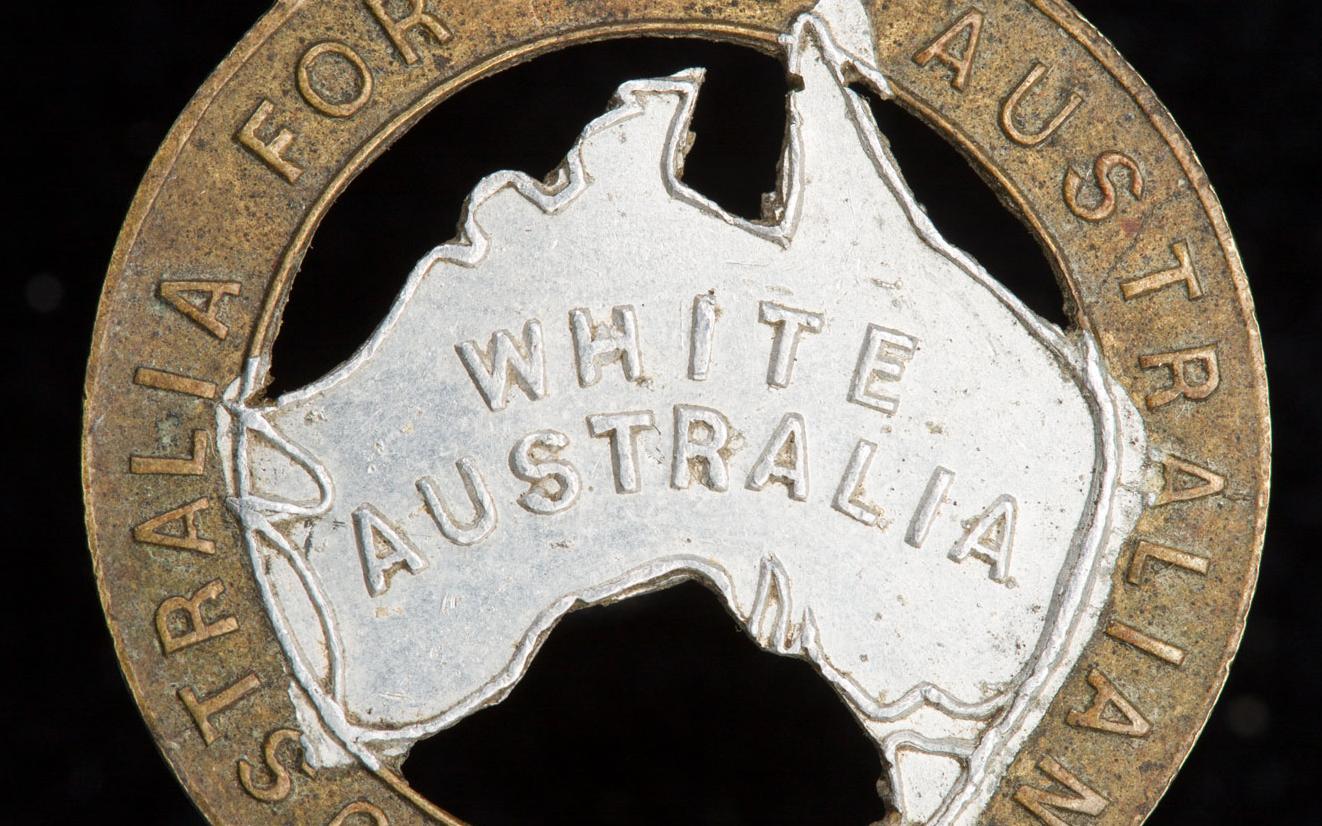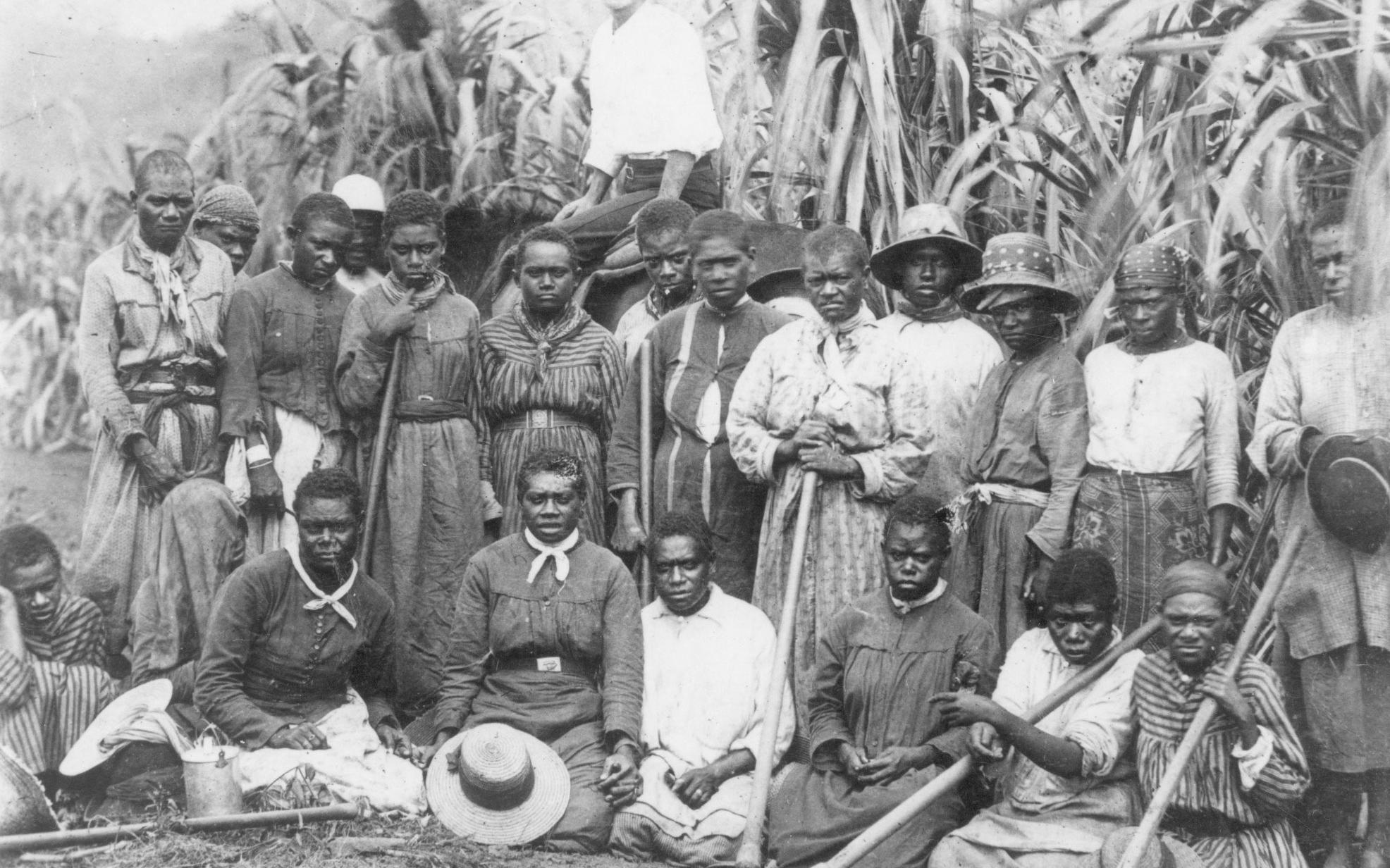Learning module:
Making a nation Defining Moments, 1750–1901
Investigation 2: Strangers in a strange land
2.5 Case study: What were attitudes to race in 1901?
Introduction
The Australian Government passed laws to limit non-white (particularly Asian) immigration to Australia.
Why did they do that? What were the attitudes and values that led to those laws?
As you look at the following material from the time, keep in mind that many of the attitudes to, and beliefs about race, are not acceptable today.
Part 1: Exploring images
One way we can try to understand the racial beliefs and attitudes of the time is through popular images. Below are two images: a poster advertising a play and a cartoon from the early 1900s.
Image A
1. Record your observations about each image in the table below.
| Image A | Image B | |
|---|---|---|
| Who is shown? | ||
| What are the people doing? | ||
| What do the words mean? | ||
| How are the people presented? | ||
| What is the tone of each image? | ||
| What is the message for the viewer of each image? |
2. How do these images show an attitude among Australians of:
3. What kind of nation do these images suggest that Australians of that time wanted to create?
Now take a look at this third image. It shows Mei Quong Tart (middle, right), a Chinese born migrant who lived and worked in Sydney as a successful merchant and philanthropist, providing a series of free feasts for the inmates of destitute asylums. Quong became a wealthy businessman during the latter half of the nineteenth century, opening a chain of tea shops. He was fully accepted by the New South Wales community.
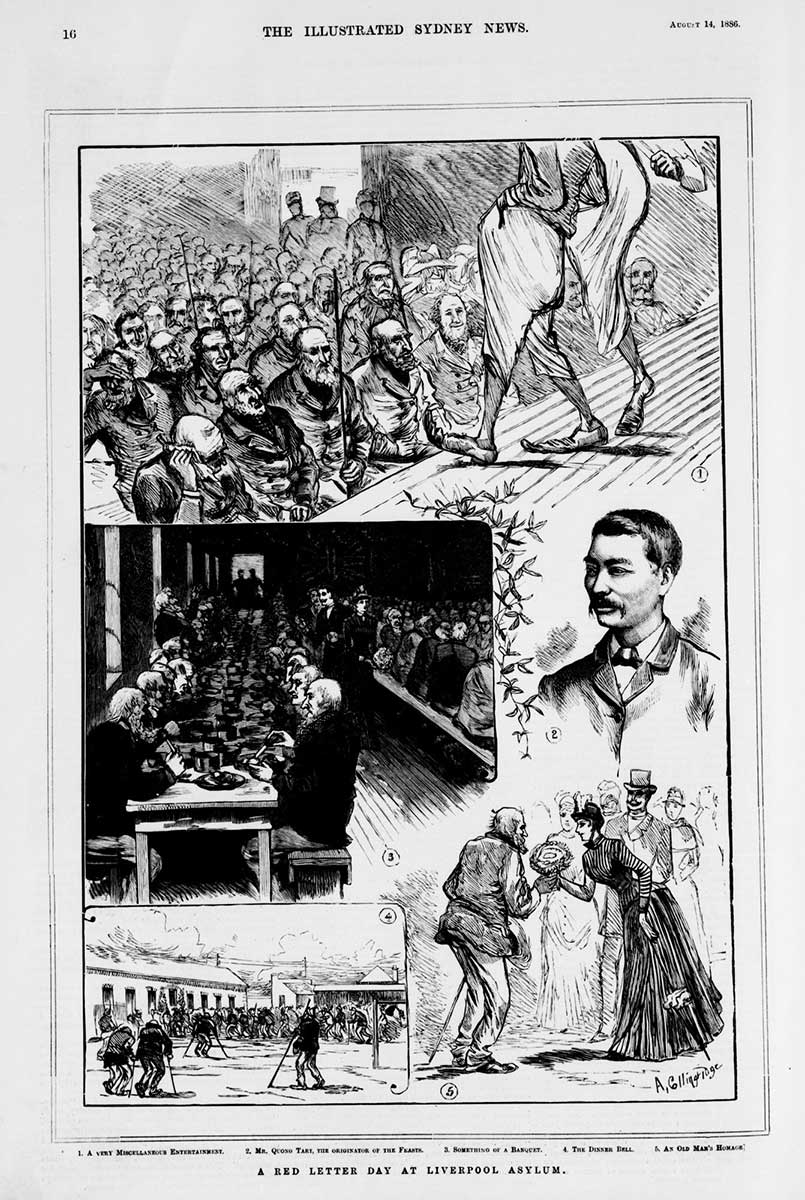
4. What is the ‘tone’ and ‘message’ of the Mei Quong Tart image?
5. Does this image, and the information about Mei Quong Tart, challenge or support the views of the previous images? Explain your answer.
You can further research the life of Mei Quong Tart at the Australian Dictionary of Biography
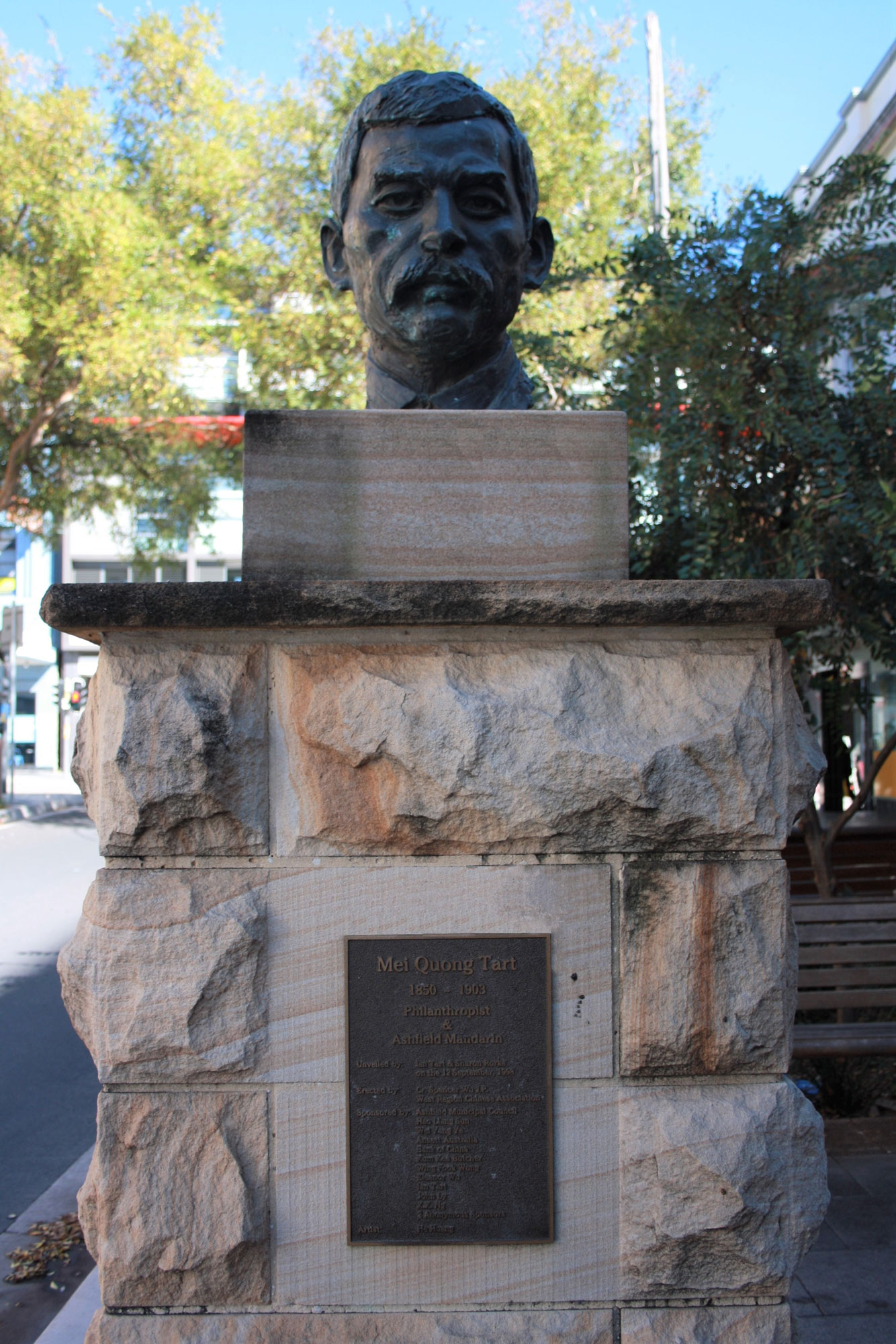
Part 2: Exploring parliamentary speeches
We can also discover these attitudes and values by looking at extracts from the debates in parliament on the Immigration Restriction Act 1901.
The Immigration Restriction Act was the main measure for restricting immigration to Australia. It gave customs officials the power to test selected immigrants with a passage of dictation of 50 words. This method was chosen because of the pretence that the test was a literacy or education test. But in fact it was known that the test would only be used to exclude ‘undesirables’, which included most non-Europeans. It was a way of avoiding problems in refusing entry to people from non-European nations, especially Japan, who had a treaty with Britain that legally allowed unrestricted migration to countries of the British Empire, including Australia.
As you look at the following material from the time, keep in mind that many of the attitudes to, and beliefs about race, are not acceptable today.
Read these three extracts from the parliament debates for the 1901 Immigration Restriction Act, and then answer the questions that follow.
A. Prime Minister Barton, Protectionist, New South Wales
I do not think... that the doctrine of the equality of man was really ever intended to include racial equality. There is that basic inequality. These races are, in comparison with white unequal and inferior. The doctrine of the equality of man was never intended to apply to the equality of the Englishman and the Chinaman... Nothing in this world can put these two races upon an equality. Nothing we can do by cultivation, by refinement, or by anything else will make some races equal to others.
Commonwealth Parliamentary Debates, House of Representatives, 26 September 1901, page 5233
B. John Watson, Labor, New South Wales
We object to them not alone on the ground of competition with our own workmen — though I admit that is one of the grounds — but also and more particularly on the ground of racial contamination... The question is whether we would desire that our sisters or our brothers should be married into any of these races to which we object.
Commonwealth Parliamentary Debates, House of Representatives, 6 September 1901, pages 4633-4
C. Attorney-General Alfred Deakin, Protectionist, Victoria
Our civilisation belongs to us, and we belong to it; we are bred in it, and it is bred in us. It fits us and is our means of progress and advancement. [The Japanese] people have their own independent development, their own qualities, and also the civilisation, forms of life and government, which naturally attach to them... The attitude of Australia is not an offensive one when it becomes understood that it is based upon these principles. It is not based upon any claim of superiority... It is sufficient that these people do not blend with us, and that they cannot share our social life or our forms of self-government.
Commonwealth Parliamentary Debates, House of Representatives, 9 October 1901, pages 5819-20
6. What are the different arguments being made in favour of restricting immigration in these three extracts?
7. Are Deakin’s views different from those of Barton and Watson? If so, how?
While the Immigration Restriction Act was passed by a large majority of the members of the Commonwealth Parliament in 1901, not all members supported the proposed Act.
Look at these three further extracts from the parliament debates for the 1901 Immigration Restriction Act and decide which of the arguments in question 6 you think they are challenging or disagreeing with.
D. Sir John Downer, Protectionist, South Australia
I have no fear of any sudden inroad of the races that we wish to exclude. It cannot possibly occur in many cases... I do not anticipate or fear any great intermixture of races from any Asiatics who may come here...
Commonwealth Parliamentary Debates, House of Representatives, 15 November 1901, page 7235
E. Senator James Macfarlane, Free Trade, Tasmania
I do not approve of this Bill, which is against the traditions of the British Empire. The cry that we shall be overrun with Asiatics I consider ill-founded. It is a parrot cry, which is got up for political purposes, and which appeals to the most gullible of our people... I deny that at present there is any danger of the contamination of our race. An Englishman is not contaminated by a residence among the millions of India or China; if so why are we so anxious to have full liberty to travel and trade amongst them? As a matter of fact, we, as the stronger and more highly civilised race, raise and ennoble them. I cannot see that there is the least possibility of any danger to the Commonwealth for very many years to come.
Commonwealth Parliamentary Debates, Senate, 15 November 1901, pages 7173-4
F. Edward Pulsford, Free Trade, New South Wales
I look upon the whole of the inhabitants of Asia as my friends. I am perfectly willing that they should be called my friends, and I hope so long as God gives me breath that I shall have the courage to stand up for what I consider to be right for them, as I shall stand up for what I consider right for myself and for any other person... I ask them to give to the amendment which I have moved their most earnest and careful consideration, so that the legislation which we may pass on this subject will be that of which Australia shall never have cause to be ashamed.
Commonwealth Parliamentary Debates, House of Representatives, 6 September 1901, page 5241
8. What are the different arguments being made against the restricting of immigration in these three extracts?
9. Looking at all the parliamentary speeches — both those in favour and those against the Immigration Restriction ACT 1901 — how do they show an attitude among Australians of:
10. Looking at all the evidence presented here — both images and parliamentary speech extracts — do you think it was inevitable that the new Commonwealth Parliament would pass the Immigration Restriction Act 1901?






